| | | | | | | Presented By The Economist | | | | Axios World | | By Dave Lawler ·Dec 13, 2021 | | Welcome back to Axios World. - Tonight's edition (1,804 words, 7 minutes) starts in Libya.
- Heads up: I hope you'll check out our new podcast. More details in No. 2 below.
| | | | | | 1 big thing: Libya's dangerous election | 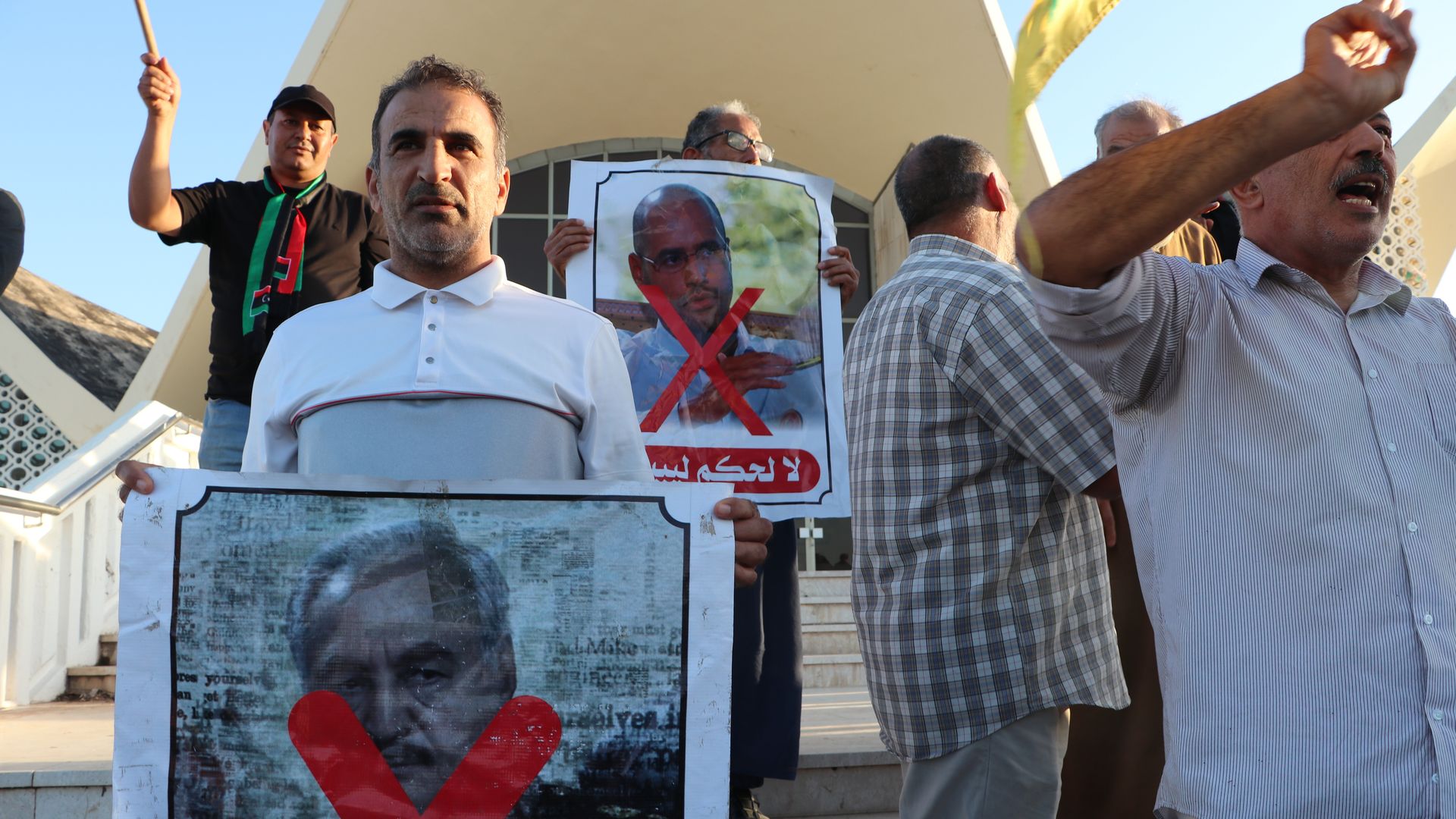 | | | Protests in Tripoli against the candidacies of Khalifa Haftar (front, with X) and Saif al-Islam Gaddafi (back, with X). Photo: Hamza Alahmar/Anadolu Agency via Getty. | | | | Libya's Dec. 24 presidential election is now all but certain to be postponed due to a dispute over who can run, raising fears that a period of relative calm will soon come to an end. Why it matters: Many feared that a rushed, winner-take-all election in the deeply divided country would spark renewed conflict. A delay carries risks of its own. The three main would-be candidates are all controversial. - Khalifa Haftar, the rogue general who dominates Eastern Libya, launched a military offensive on Tripoli in 2019 that sparked renewed civil war.
- Saif al-Islam Gaddafi, an alleged war criminal who was rumored to be dead, has re-emerged as a potential heir to his father, dictator Muammar Gaddafi.
- Interim Prime Minister Abdelhamid Dabeiba has broken a vow not to run, and critics say he's effectively bankrolling his campaign using state resources.
Driving the news: All three have faced legal challenges to their candidacies, some of which are ongoing. As a result, the electoral commission was unable to publish the candidate list on time to hold the requisite two weeks of campaigning before Dec. 24. - It remains to be seen whether the now-inevitable postponement will be days-long, indefinite, or somewhere in between.
The state of play: Political factions are maneuvering to take advantage of the precarious situation, says Claudia Gazzini, Libya analyst for the International Crisis Group. - Some want a delay of at least a year. Others contend Dabeiba's mandate ends on Dec. 24 and he must be replaced. Some are still pushing to vote as soon as possible.
- Gazzini says "the most realistic option" is a delay of a few months in order to sort out the list of candidates, adjust the election law, and try to gather commitments to respect the result.
- Emadeddin Badi, a Libya expert at the Atlantic Council, contends that if an election is held under the current circumstances — with a disputed legal basis, no provisions for power-sharing and armed groups backing particular candidates — "it's going to manufacture a crisis more than it's going to solve anything."
What to watch: The potential pitfalls of the two-part elections are many. - "What happens if Haftar doesn't make it to the second round?" Gazzini asks. "Is he going to all of a sudden say, 'OK, no problem, I'm going to recognize the results anyways?'" This is, after all, the man who just launched a civil war.
- "What happens if Saif al-Islam turns out to be the winner? Is everyone going to be cool and accept it as the result?" she continues.
Between the lines: That potential outcome is the cause of particular concern in Washington, Badi says. Russia, he adds, is backing Saif's candidacy. Flashback: Once the face of reform in his father's regime, Saif became a pariah from the moment he declared — during the uprising in 2011 against his father — that thousands would die and Libya would descend into civil war if the protests continued. - Now those remarks strike many Libyans as prescient, Gazzini says, and Saif appears "clean from the dirty politics of the last 10 years."
- Many Libyans have grown nostalgic for the Gaddafi era after a decade of chaos.
What's next: "The definition of a dire situation or a conflict in Libya is now basically this surreal show of drones, foreigners, Syrian mercenaries, Russian mercenaries," says Badi. - "We're bound to have some type of conflict, whether in the lead-up to elections being delayed or after the elections are delayed," he says, but likely not on that scale for now.
|     | | | | | | 2. Excerpt: The chaotic origins of the Abraham Accords | 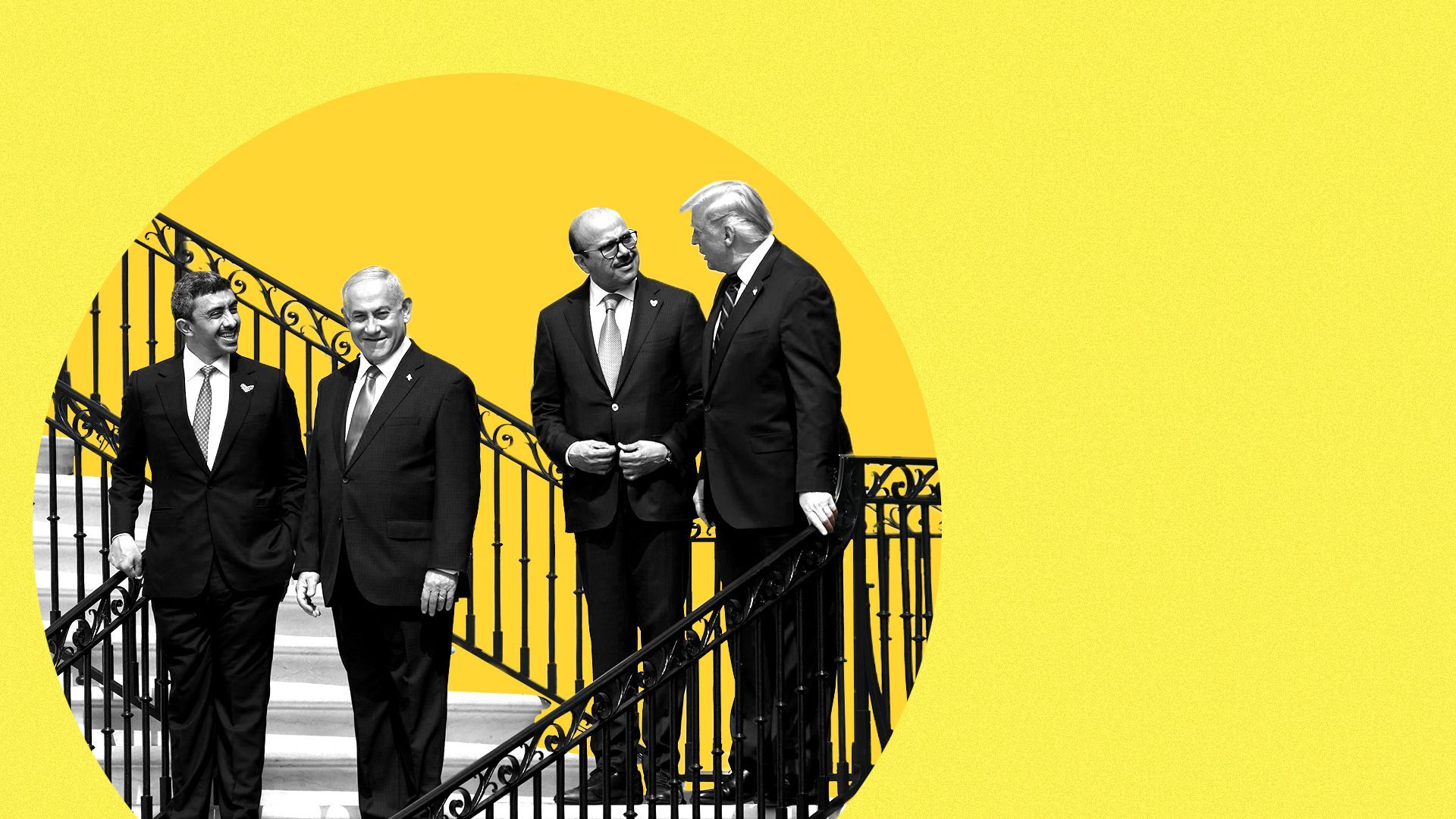 | | | Photo Illustration: Annelise Capossela. Photo: Chen Mengtong/China News Service via Getty Images | | | | Axios' Barak Ravid spoke to nearly all of the key players involved in the secret dealmaking between Israel, the U.S. and four Arab countries to write the definitive behind-the-scenes account of the Abraham Accords. That reporting is available in our new podcast, in Barak's new book (in Hebrew) and on our site (in English). Here's an excerpt: A week before Benjamin Netanyahu's July 1, 2020, deadline to annex parts of the West Bank, Donald Trump agreed to hold an Oval Office meeting on the topic. Why it matters: Netanyahu's plans would violate international law, likely kill the two-state solution for good, and potentially destabilize the region. World leaders were scrambling to stop him. But Trump's ambassador to Israel, David Friedman, was pushing for annexation. Behind the scenes: Trump began the meeting in an impatient and irritable mood. He griped about a speech Netanyahu had given several months earlier during the unveiling of his Middle East peace plan (the campaign-style speech was "inappropriate," Trump later said in an interview). - Trump cut off Friedman's annexation pitch, asking, "Why are we talking about this?" As Friedman tried to make his case, Trump insisted he'd already done more for Israel than any other president.
- At one point, Friedman noted that there was a rift inside the Israeli government on whether to move ahead on annexation. By then, Trump had had enough.
- "Mike, you decide," Trump said, pointing at Secretary of State Mike Pompeo. "But if anything bad happens, it's on all your heads."
Go deeper: |     | | | | | | 3. Global news roundup | 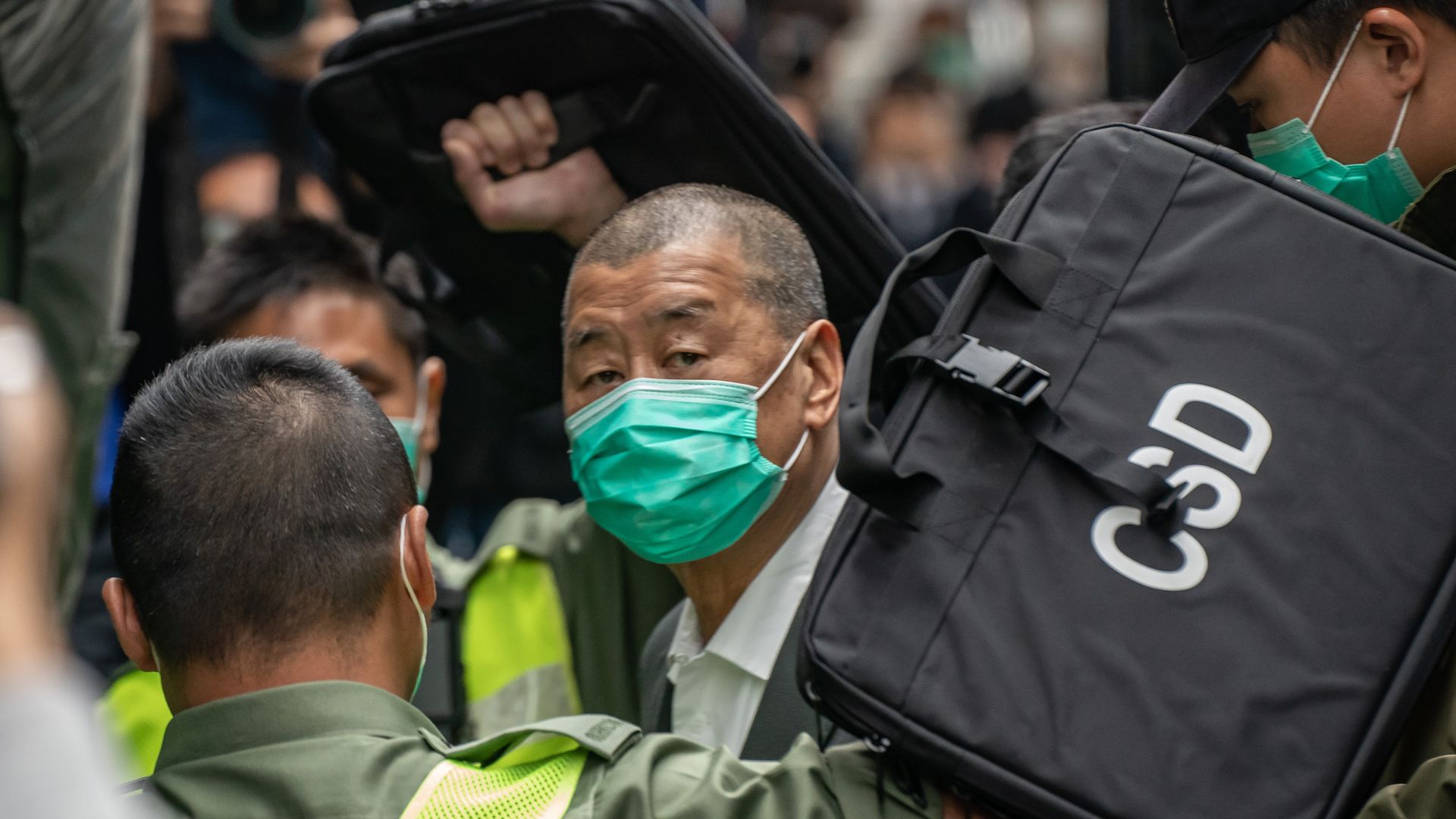 | | | Jimmy Lai arrives at court in February. Photo: Anthony Kwan/Getty Images | | | | 1. As a Taiwanese official presenting at Biden's Summit of Democracy last Friday showed a slide that appeared to show Taiwan as a different country from China, the video feed was cut, Reuters reports. - On the one hand: Sources told Reuters the White House cut the video because of concerns around the "one China policy," under which the U.S. does not recognize Taiwan's independence.
- On the other: The State Department said it was an "honest mistake" due to screen-sharing issues.
2. China shipped 1 million Covid vaccines to Nicaragua after the country severed diplomatic relations with Taiwan, leaving just 13 countries recognizing the self-governing island. 3. Russia today vetoed a UN Security Council resolution calling for climate change to be treated as a core threat to international security. India also voted "no." 4. Media mogul Jimmy Lai and seven other pro-democracy figures in Hong Kong were sentenced to up to 14 months in prison today for taking part in a commemoration last year of the Tiananmen Square massacre. 5. Democratic Republic of Congo President Felix Tshisekedi today offered assurances that Ugandan forces taking part in a joint operation against a rebel group would only be in the country temporarily. - Flashback: "Uganda's intervention has provoked unease because of its army's conduct during Congo's 1998-2003 civil war, when Uganda was accused of occupying territory and plundering resources," Reuters notes.
|     | | | | | | A message from The Economist | | Enjoy an unmissable offer | | |  | | | | Enjoy 50% off an annual digital subscription in our special holiday offer. Your ideal companion to the festive season, our global analysis and opinion connects you more deeply to the issues that matter. Subscribe | | | | | | Bonus: Where in the World | 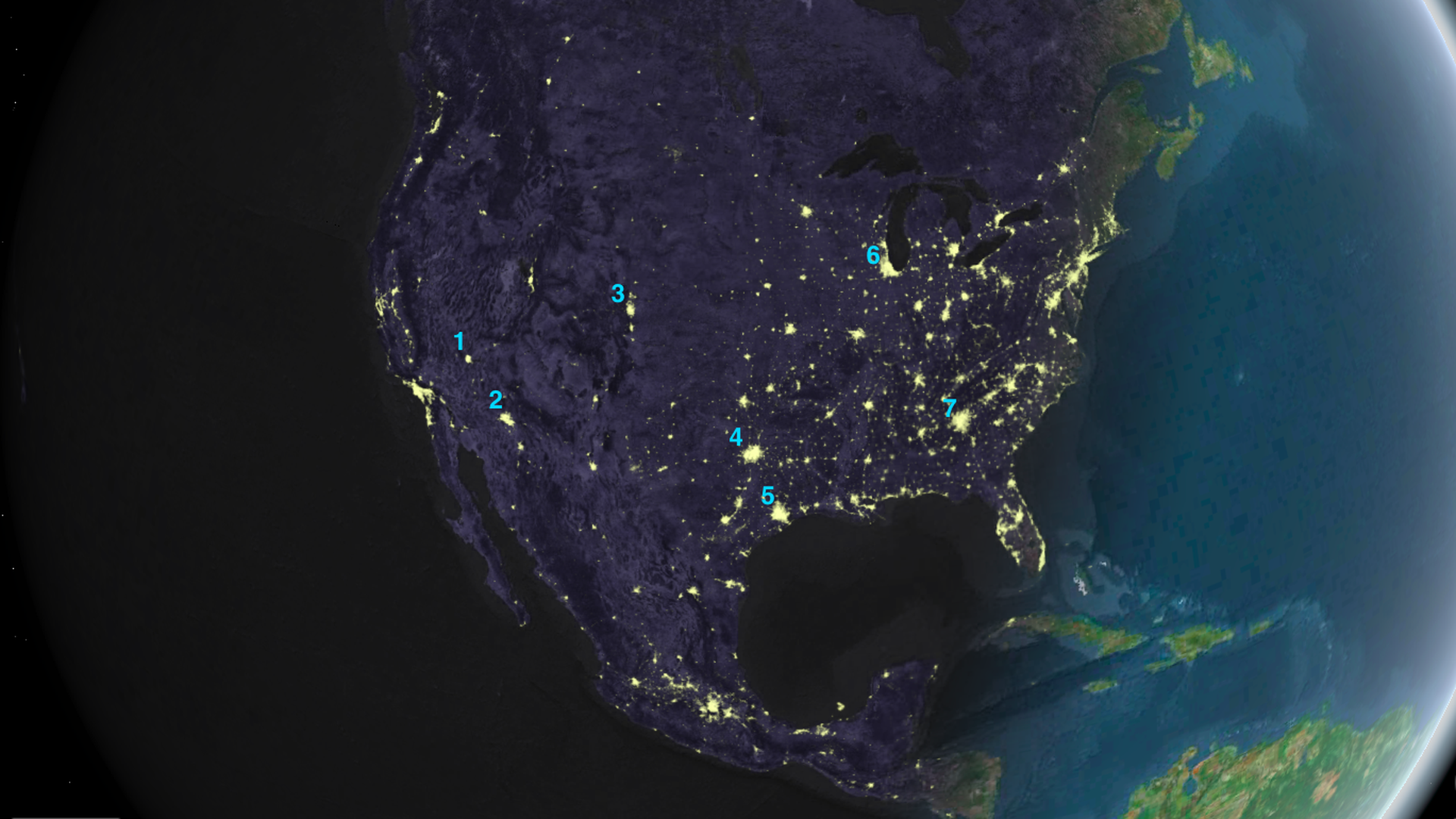 | | | Screengrab via Apple Maps | | | | We're staying in the U.S. for a road trip to the seven cities above — starting in the deserts (1-2) and mountains (3) of the West and ending in the South (7), with stops in Texas and the Midwest. Can you name all 7? Scroll to bottom for answer. |     | | | | | | 4. Environmental protests rock Serbia | 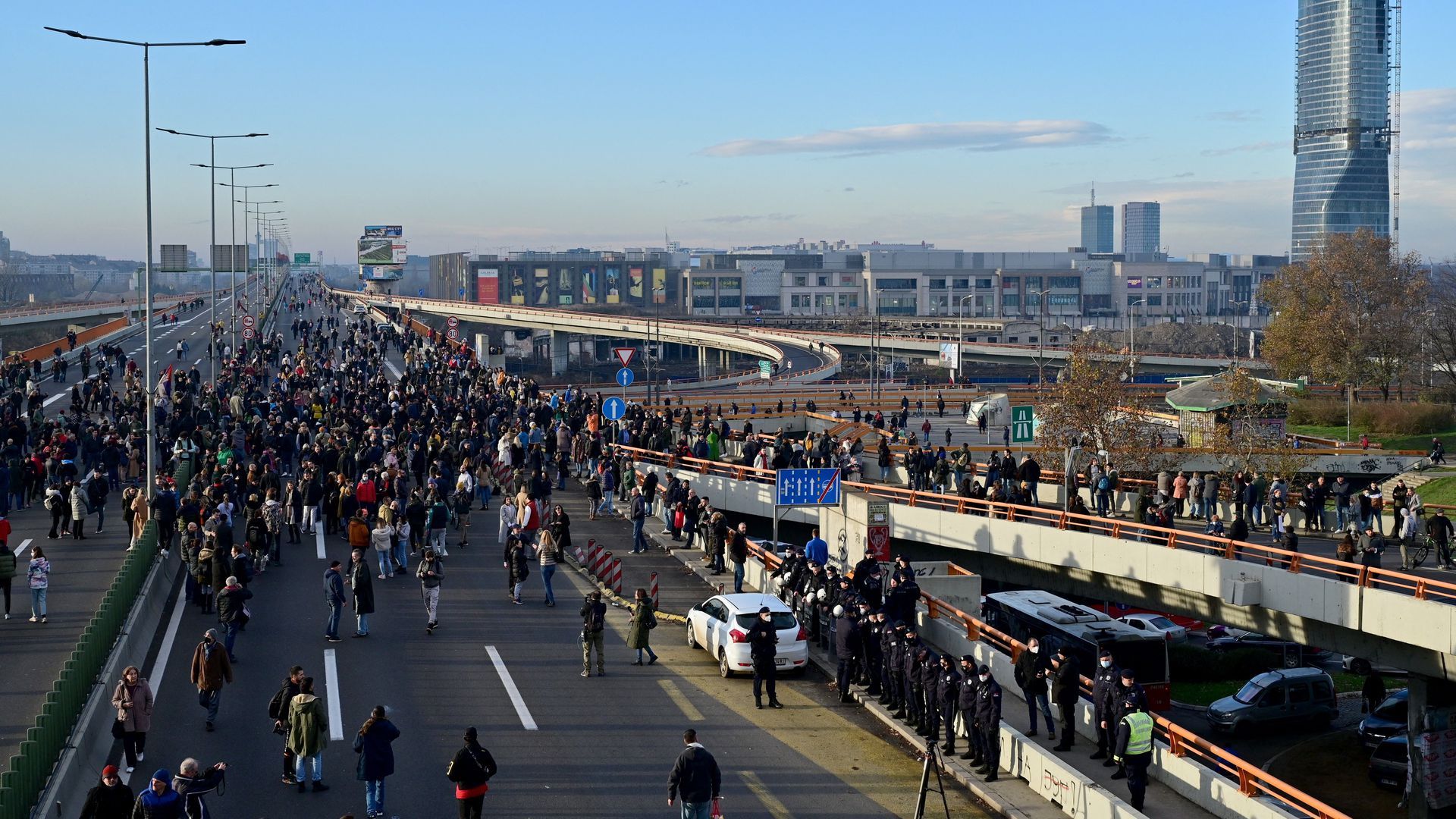 | | | Demonstrators block the main highway in Belgrade on Nov. 27. Photo: Andrej Isakovic/AFP via Getty Images | | | | Thousands of protesters across Serbia blocked roadways and bridges for the third consecutive weekend over the government's environmental policies, including a proposal for a new lithium mine. Why it matters: These are some of the largest anti-government protests President Aleksandar Vučić's government has seen in years. They come ahead of April's general election. Driving the news: The protests were initially prompted by two recently adopted laws that would have paved the way for the expansion of mining projects like a new lithium mine run by Anglo-Australian company Rio Tinto. - Vučić last week agreed to withdraw and amend the controversial laws and allow for more debate on the Rio Tinto project.
- Yes, but: There's suspicion among the activists that the government is only seeking to stall until the elections are over, says Srđan Cvijić, a senior policy analyst at the Open Society Foundation.
Between the lines: While Serbia is no stranger to mass protests, the latest wave of demonstrations has united a wide spectrum of opposition and civil society groups. - Activist Savo Manojlović summed it up: "Protests for all. Leftists bothered by right-wingers can put up a blockade at a different location. ... Divide yourselves later."
- A 2019 report from the Global Alliance for Health and Pollution found that Serbia has the highest number of deaths from pollution in Europe, and ranks ninth in the world.
|     | | | | | | 5. Haiti: A motive to kill a president | 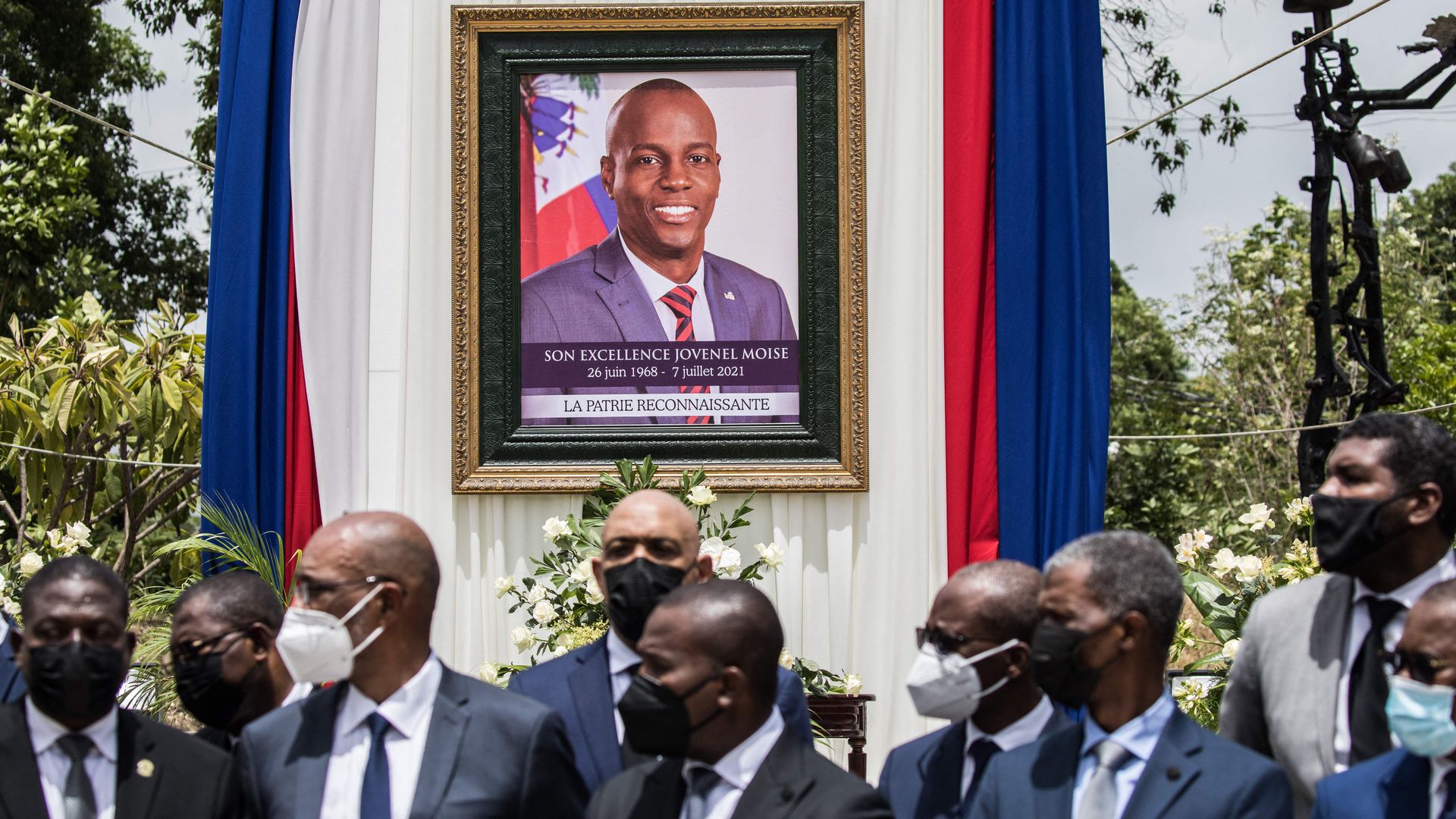 | | | Officials attend Moïse's funeral in July. Photo: Valerie Baeriswyl/AFP via Getty | | | | Before Haitian president Jovenel Moïse was assassinated, he had been compiling a list of businesspeople and politicians involved in the drug trade and planning to deliver it to the U.S. government, The NYT's Maria Abi-Habib reports. Why it matters: The late president's wife, Martine Moïse, told Abi-Habib that gunmen rifled through her husband's files during the attack as she laid wounded on the floor. Some of the alleged hit men have told investigators they were instructed to find the list. - "I would be a fool to think that narco-trafficking and arms trafficking didn't play a role in the assassination," Daniel Foote who was until recently the U.S. special envoy to Haiti, told The Times. "Anyone who understands Haiti's politics or economics understands this."
- Many of those who feared exposure by Moïse were his former allies in the country's business and political elite.
- The investigation into the assassination has stalled.
One line that hit hard: "The true leader wasn't the president," said Gabriel Fortuné, a close adviser to Mr. Moïse who died in an earthquake a day after speaking with The Times. "It was his godfather, [former president Michel] Martelly. Go deeper: Read The NYT investigation |     | | | | | | 6. What I'm watching: Nigeria's Black Axe | 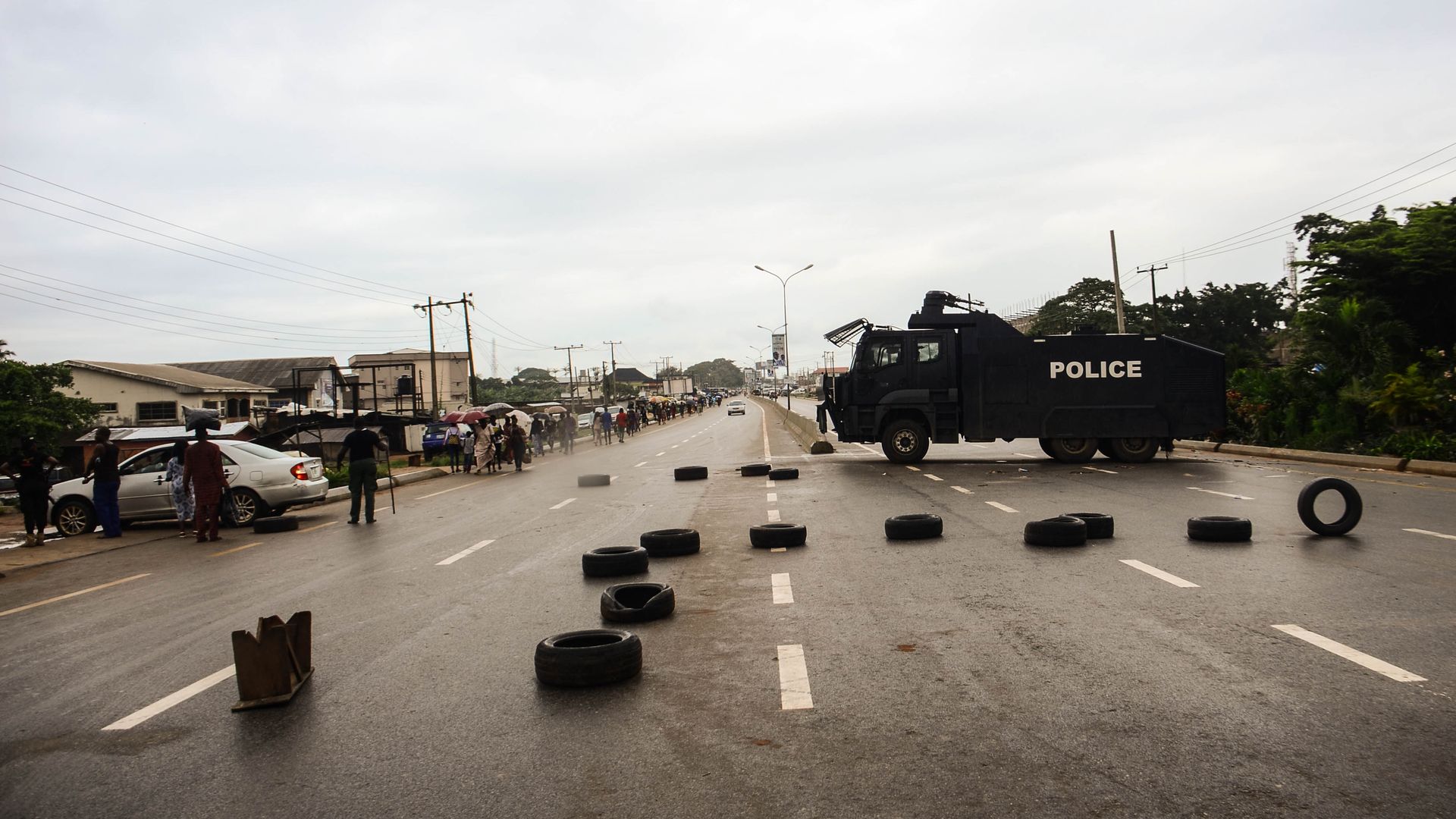 | | | Benin City, Nigeria. Home of Black Axe. Photo: Olukayode Jaiyeola/NurPhoto via Getty | | | | A gripping new BBC documentary on Black Axe — part crime family, part death cult — finds that the secretive group has deep political links in Nigeria and tentacles all over the world. The backstory: The group was founded 40 years ago in Benin City and recruits mainly young, male college students, putting them through a brutally violent initiation ceremony and swearing them to secrecy. Members perform spiritual rituals. Many also commit murder. - The group makes its money mainly through internet fraud, running lucrative scams all over the world. Its other activities allegedly include drug smuggling, human trafficking and petty street crime.
- Members told the BBC's Peter Macjob that their ranks include police officers, professors, military leaders and priests.
- Black Axe has infiltrated politics, particularly in its base of Ebo State. Politicians pay the cult to intimidate voters. Some are members themselves.
Go deeper: Read or watch. |     | | | | | | 7. Stories we're watching | 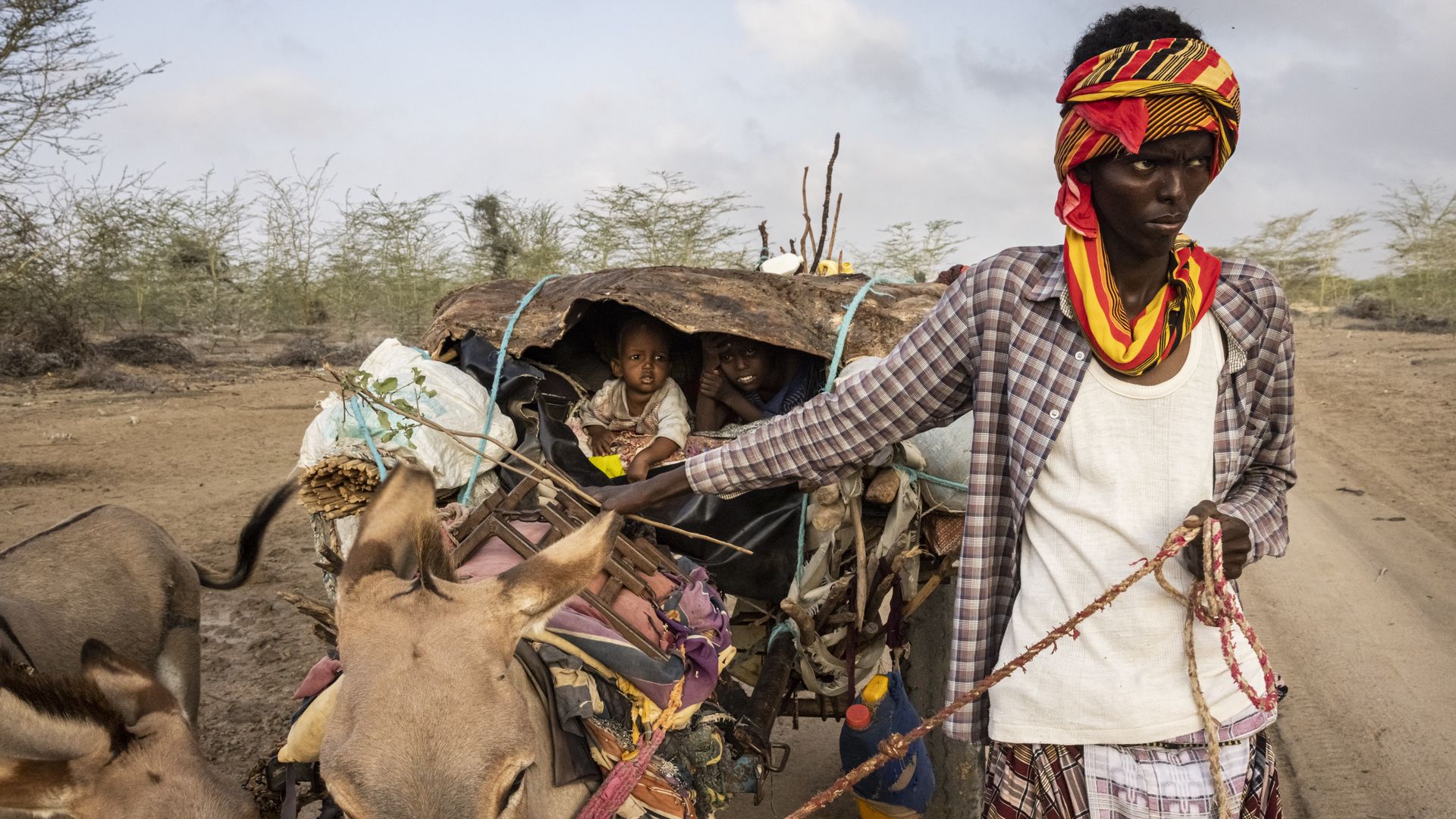 | | | A family migrates in search of grazing land in drought-stricken northeastern Kenya. Photo: Ed Ram/Getty Images | | | - Omicron: U.K. raises alert; Ramaphosa tests positive
- Ukraine: G7 warns Putin; Biden speaks with Germany's Scholz.
- South Korea's leader says "end of war declaration" close
- Most Americans support Olympics boycott of some kind
- Mexico trailer crash kills 53 migrants
- 2,500 U.S. troops to remain in Iraq
- Press freedom push
Quoted: "This was the time to give back something for the kindness and the humanity that had helped my mother and family survive." — Helga Macfarlane of Aberdeen, Scotland, who has provided a home to an Afghan interpreter and his family in honor of her mother, a fellow refugee who herself served as an interpreter for British forces in World War II |     | | | | | | A message from The Economist | | Enjoy an unmissable offer | | |  | | | | Enjoy 50% off an annual digital subscription in our special holiday offer. Your ideal companion to the festive season, our global analysis and opinion connects you more deeply to the issues that matter. Subscribe | | | | Answers: Las Vegas (1), Phoenix (2), Denver (3), Dallas (4), Houston (5), Chicago (6), Atlanta (7). |  | Bring the strength of Smart Brevity® to your team — more effective communications, powered by Axios HQ. | | | | | | Axios thanks our partners for supporting our newsletters. If you're interested in advertising, learn more here.
Sponsorship has no influence on editorial content. Axios, 3100 Clarendon Blvd, Suite 1300, Arlington VA 22201 | | | You received this email because you signed up for newsletters from Axios.
Change your preferences or unsubscribe here. | | | Was this email forwarded to you?
Sign up now to get Axios in your inbox. | | | | Follow Axios on social media:    | | | | | |
Post a Comment
0Comments